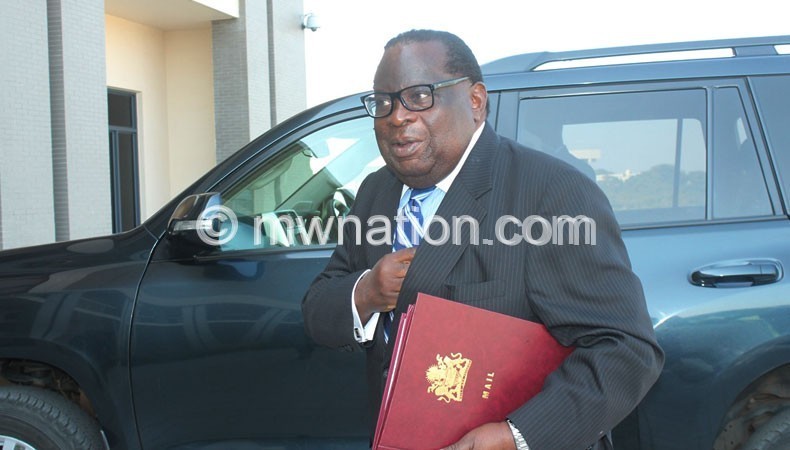World Bank not resuming budgetary aid
As Minister of Finance, Economic Planning and Development Goodall Gondwe is warming up to present the 2015/16 National Budget, the World Bank has stressed that it will not resume budgetary aid to Malawi.
World Bank, alongside other major donors, has been withholding budget support for Malawi since the unravelling of the massive looting of public funds at the Capital Hill popularly known as Cashgate.
However, International Monetary Fund (IMF) has recently softened up and has resumed providing support through the Extended Credit Facility (ECF).
But World Bank communications officer, Zeria Banda, said in an email interview this week that there are no prospects that Malawi could start receiving budgetary aid from the Bretton Woods institution anytime soon.
She explained: “Our position on budgetary support still remains the same. When we’re ready to provide, we’ll let you know. Of course, we remain committed to our development activities, which run up to 2017.”
Last year, World Bank channelled its financial resources to two projects—the Malawi Social Action Fund (Masaf 4) and the Skills Development Projects—worth a combined $83.8 million (about K34 billion).
Banda stated that Malawi Government could not account for part of the money—K70 million—intended for public works programmes in Dowa and Phalombe districts.
She said the Bank had noted that ‘there was an ineligible expenses, meaning the funds were not used for the intended purposes.
“And when this ineligible expense was noted, we demanded a refund of the money and I can report to you that Malawi Government has since made a full refund of the money,” said Banda.
She said the refund was made in March 2015.
Banda said the refunded money is “ploughed back to the country International Development Association (IDA) pot for new allocations”.
“If the money is refunded after the project closing, it does not go back to the country IDA pot, but rather the general IDA pot.
“Since this money was recovered after Masaf 3 ended, it goes back to the general IDA pot for further allocations,” she explained.
Hard to trust govt
The story about the government refunding K70 million to the World Bank should not be the end of the matter. Instead, it should serve as a launch pad for a long and thorough soul-searching about how profligate we are in managing — or mismanaging — public funds.
Today, we are talking about misappropriated funds meant for public works programmes in Dowa and Phalombe, but this is one well-beaten path we have trodden before.
In recent memory, we witnessed the case of The Global Fund which collared the National Aids Commission to refund millions of dollars it had misused until it did early this year. Government has also been made to refund donor money for flouting procurement procedures in the past.
The question that lingers, after government has been forced to refund, is: does anyone at all in government care to learn the harsh lessons from such incidents to avert a recurrence?
Further, we do not imagine there is a pot of gold idly lying somewhere to act as a contingency fund from which government can draw to make good of misused donor funds. Obviously, the money for which government uses in refunding misused funds is diverted from other sources which suffer as a consequence.
The ultimate loser, as happens in such cases, are poor citizens. The people who misuse the funds do not feel the pinch. In this case, it is the people of Dowa and Phalombe who will feel it for it is for them that the World Bank gave government the money in the first place.
The sad thing about such incidents is that government rarely takes to task public officers responsible.
We can talk all day about public sector reforms or public finance management systems reforms, but if government adopts a business-as-usual attitude in dealing with errant public officers, we might as well be preaching to an empty church.
If government can abuse donor funds — which come with stringent conditions attached and are closely monitored —with such impunity, we have little trust that it handles locally generated resources, for which it is accountable to itself, with any prudence.





